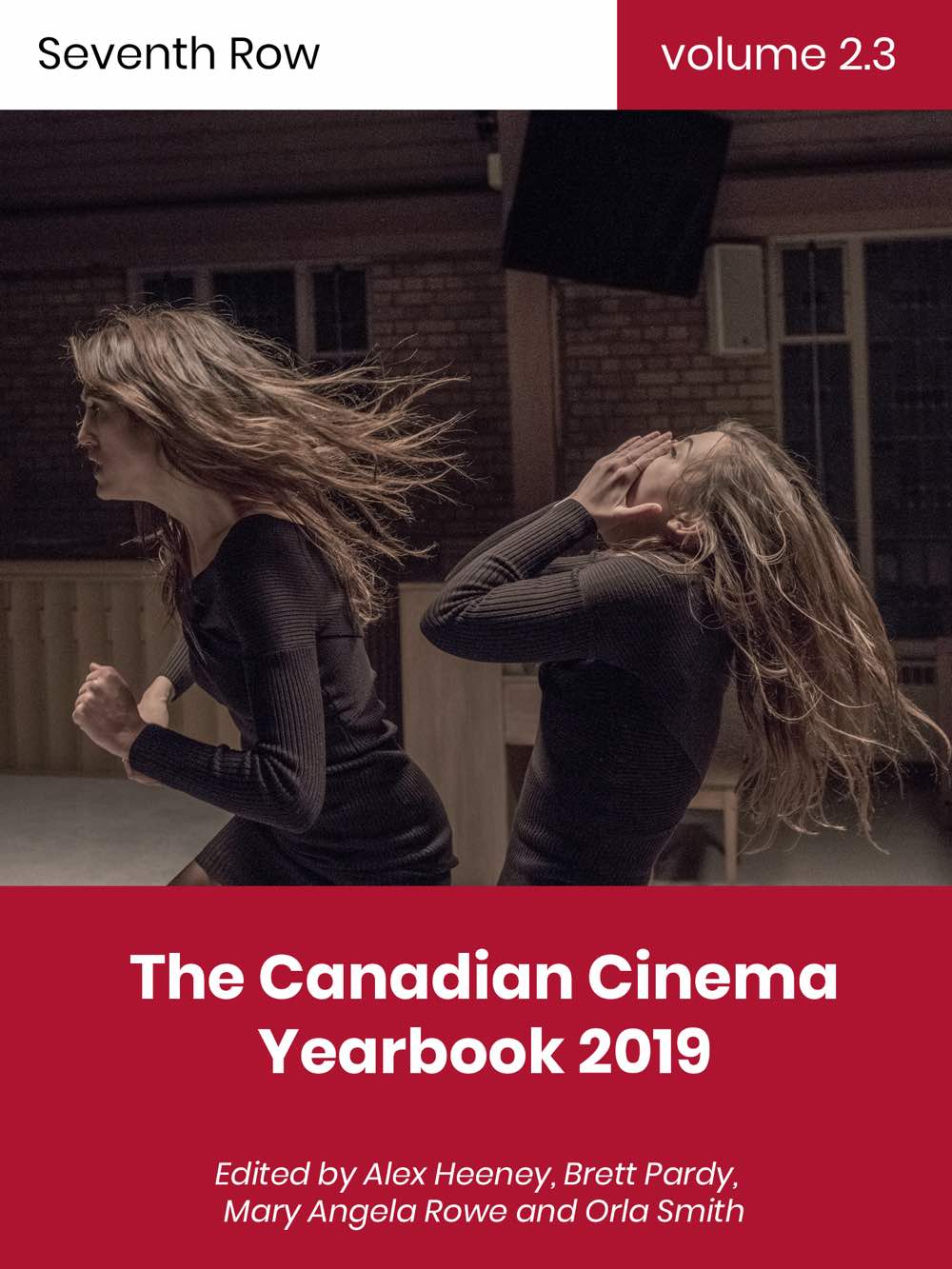Alex Heeney takes a look at some of the best films from so-called Canada to premiere this fall, including Bootlegger, Albedo, and Portraits from a Fire.
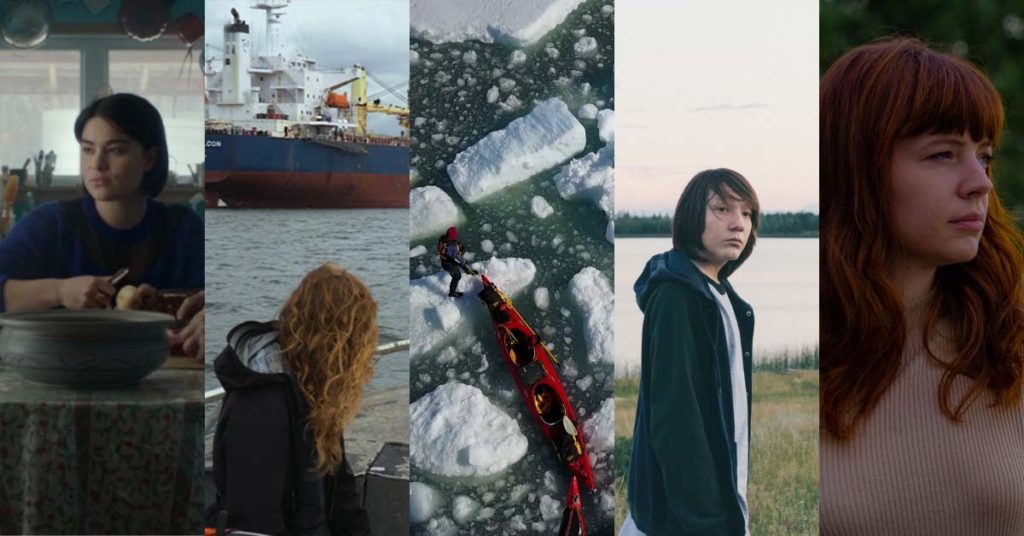
Discover one film you didn’t know you needed:
Not in the zeitgeist. Not pushed by streamers.
But still easy to find — and worth sitting with.
And a guide to help you do just that.
There was a time when you could fairly reliably sample the best films from so-called Canada at the Toronto International Film Festival in September. But more and more every year, the festival’s Canadian programming gets worse while other regional fall festivals seem to program better Canadian films. Case in point: last year, Nadia, Butterfly, Rustic Oracle, Monkey Beach, and Call Me Human all made our list of the best films of 2020 — none of which screened at TIFF. Although we loved Scarborough and Night Raiders at TIFF this year, many of its Canadian selections were underwhelming (e.g., Learn to Swim, Oscar Peterson: Black + White, Drunken Birds, Charlotte) and many weren’t even available to Canadian press (e.g., All My Puny Sorrows).
So this fall, I’ve been actively scoping out Canadian films at other festivals. Last year, I attended Sudbury’s CineFest festival virtually for the first time, and discovered some of my favourite Canadian films to premiere that year, including Quebexit. The programming this year was consistently good, offering a chance to catch up with TIFF films I missed, like the excellent Wochiigi Lo: End of Peace, and the well-acted but disappointing All My Puny Sorrows. More impressive though was their programming of Indigenous films — Bootlegger, Portraits from a Fire, and Wochiigi Lo: End of the Peace — which were consistently strong, and have also gone on to play many other regional festivals. The Calgary International Film Festival and Vancouver International Film Festival, which last year programmed the excellent John Ware Reclaimed, also screened must-sees like Returning Home, Coextinction, and Last of the Right Whales.
With the caveat that I’m still catching up with Canadian films that screened at all of these festivals (including The Noise of Engines and Run Woman Run), here are five of the most rewarding films I caught on the Canadian festival circuit this fall which didn’t screen at TIFF.
Bootlegger
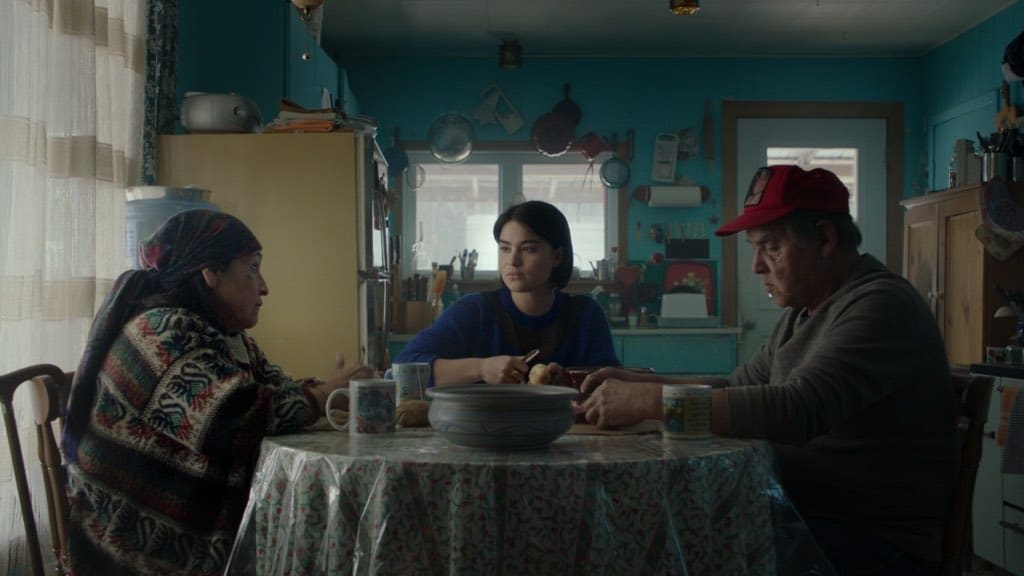
Caroline Monnet’s feature debut, Bootlegger, follows a young Indigenous lawyer, Mani (Devery Jacobs), who returns to her home reserve, after years living away, in order to complete her graduate school research. On the reserve, alcohol has been banned — not by the Canadian government, as was the case in years past, but by the Indigenous leaders themselves. Mani is trying to encourage the creation of a referendum to let the community decide whether to keep the ban on alcohol which echoes colonialist history.
Bootlegger is thoughtful in its exploration of what it means to become detached from your home as an Indigenous woman, as well as how Indigenous people can end up becoming complicit in their own colonisation because so few options are available to them. The film also positions alcohol as just one way in which the community is being destroyed (e.g., forestry is another). Jacobs is fantastic, as always, here speaking multiple languages. The film is also gorgeously shot. Not all of Monnet’s ideas are fully explored, but it’s certainly a conversation starter and essential viewing for Canadians.
Bootlegger screened at FIN Atlantic Film Festival, Cinefest Sudbury, Vancouver International Film Festival, Festival du Nouveau Cinema, and ImagineNative Film Festival.
2. Portraits from a Fire
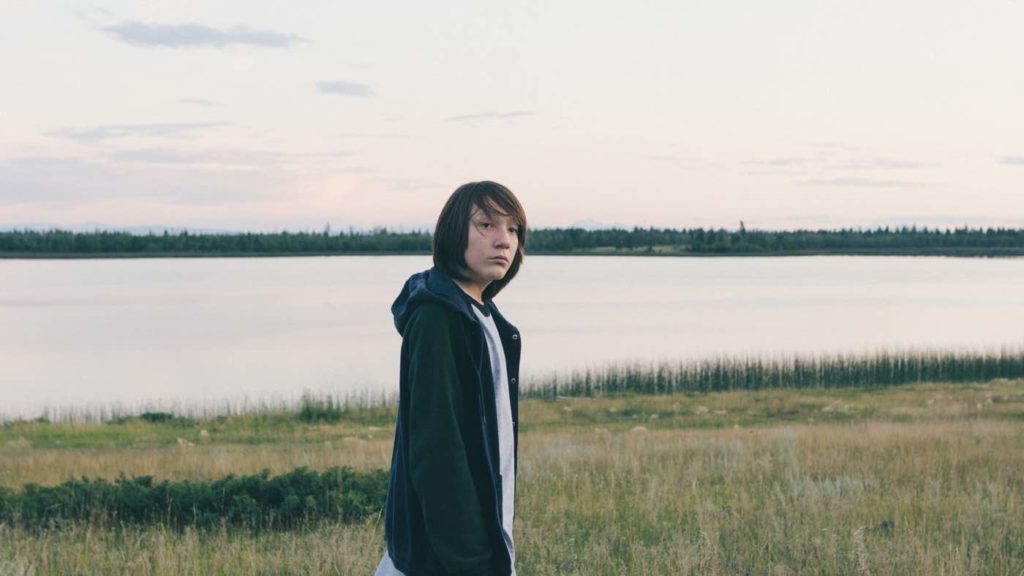
Tsilhqot’in filmmaker Trevor Mack’s feature debut, Portraits from a Fire, is a hugely ambitious film about family trauma, coming of age, and memory. The film follows sixteen-year-old Tyler (William Magnus Lulua) who dreams of becoming a filmmaker, and makes his own movies by himself using an old camcorder he found in his house. Tyler is mostly left to his own devices; his mother is no longer around, and his father is largely absent for work. When Tyler discovers footage of his parents when they were young, it sparks questions about the lies of omission about what happened to his mother.
There’s a dreamy quality to Portraits from a Fire, which uses digital glitches in thoughtful ways to look at the link between video footage and memory. It’s also enormously funny and entertaining at times, hugely steeped in place and culture, and also heartbreaking. It doesn’t always work, with some particularly poor dialogue at times, but the performances are uniformly great. The film’s many thoughtful visual ideas make Trevor Mack a major talent to watch behind the camera.
Portraits from a Fire screened at Cinefest Sudbury, Calgary International Film Festival, Vancouver International Film Festival, and ImagineNative. Portraits from a Fire will be available on VOD across Canada on November 9.
3. Coextinction
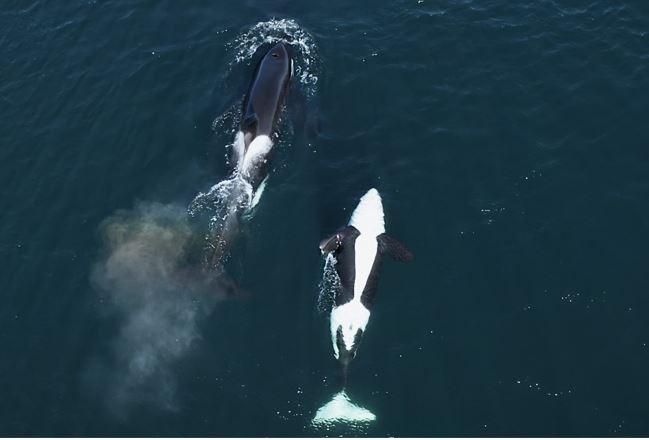
“Settler filmmakers Gloria Pancrazi and Elena Jean began the making of Coextinction as a fight to protect the Southern Resident killer whales, of which there are less than one hundred left. In the process of trying to understand what threatens the killer whales, they discover the dangers of the excessive noise produced by the shipping lanes, which interfere with the killer whales’ ability to find their prey. But soon, they realise the problem is not just with being able to find the prey, but the existence of the prey at all.
These killer whales survive primarily off salmon, which Returning Home viewers will know are dwindling in numbers in the Pacific Northwest. Following the story behind the destruction of the salmon population lead Pancrazi and Jean to interact with many Indigenous leaders in the area. They also discover the detrimental effects of salmon farming (run by companies from outside of Canada). Their journey eventually leads them down to the States to discover how mega-dams (not unlike Site C) are obstructing the migratory path of the salmon population. They soon find, too, that killer whales aren’t the only species to depend on salmon; it’s an essential element of the food chain for many wildlife species as well as Indigenous Peoples.” Read more.
Coextinction screened at the Vancouver International Film Festival and Planet in Focus.
4. Albedo
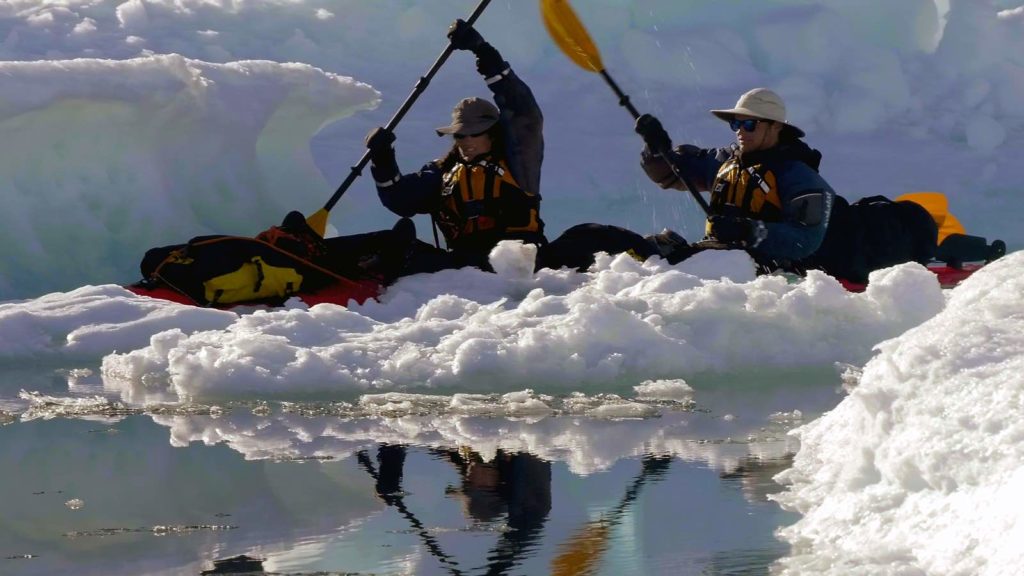
It’s one thing to be told that the ice caps are melting; it’s another thing to see it for yourself. In Albedo, a scientific expedition heads close to the North Pole to document the coldest part of the Arctic Ocean and to document the ice floes. What they discover is that although the climate models suggest that the ice floes are intact, in reality, they are broken up into small, floating pieces, which will travel south and melt. If things are in such dire straits here, it’s only worse everywhere else. The film gets its title from the Albedo effect, wherein the ice on the earth’s surface reflects sunlight, preventing it from being absorbed into the earth and thus preventing heating.
Albedo is a visual testament to how the Albedo effect works: if the ice melts, it will be replaced by darker water, which will absorb the sun’s light, further speeding up global warming. There’s an adventure story built into the film, because what would have been an easily navigated route ten years ago proves treacherous today because of the quickly changing climate and increasingly melting ice. The film is sometimes a bit long and clunky and doesn’t have the finesse of something like Coextinction or Wochiigi Lo, but it will completely change how you think about global warming and the state of the glaciers. It’s visually stunning, too, taking us to remote parts of the world we’ll never visit, and we get to watch firsthand as the team is shocked by just how much the world has changed and just how much the ice has melted.
5. The Boathouse
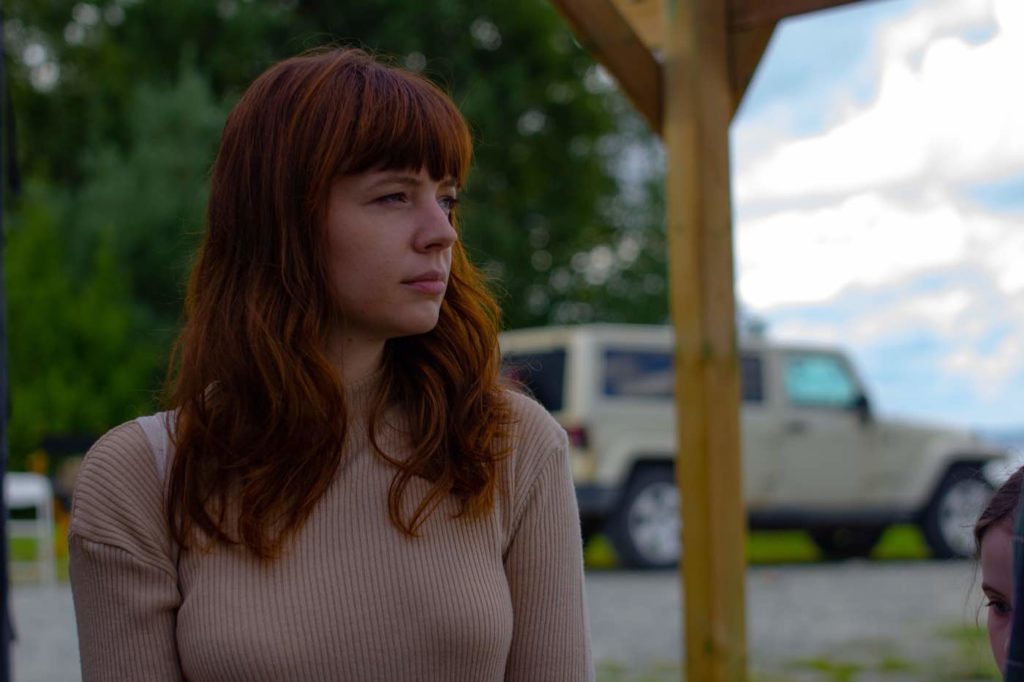
This thriller by Hannah Cheeseman, the director of Succor (one of our favourite shorts at TIFF20) starts out promising and then gets very silly. The film is mainly an excuse for a wonderful central performance by Michael Kurimsky, who first broke out in 2019’s Firecrackers with an amazing lead performance.
Kurimsky stars as Anne, a music graduate student on leave who decides to take a job taking care of the children of her ex-advisor who disappeared, which means living at their cottage country home with her ex-advisor’s husband and two children. Pretty much every cliche you can imagine eventually comes up, but the film at least starts as a thoughtful look at power dynamics (especially within grad school). The film also features wonderful costumes by Mara Zigler, who has previously designed costumes for Sugar Daddy, Firecrackers, and Mouthpiece. Though I found the film ultimately disappointing, it’s great to see Kurimsky and Zigler doing such fantastic work, and Cheeseman continues to show great promise as a director.
The Boathouse screened at Cinefest Sudbury, Calgary International Film Festival, and Vancouver International Film Festival.
You could be missing out on opportunities to watch great films like Bootlegger, Albedo, and Portraits from a Fire at virtual cinemas, VOD, and festivals.
Subscribe to the Seventh Row newsletter to stay in the know.
Subscribers to our newsletter get an email every Friday which details great new streaming options in Canada, the US, and the UK.
Click here to subscribe to the Seventh Row newsletter.
